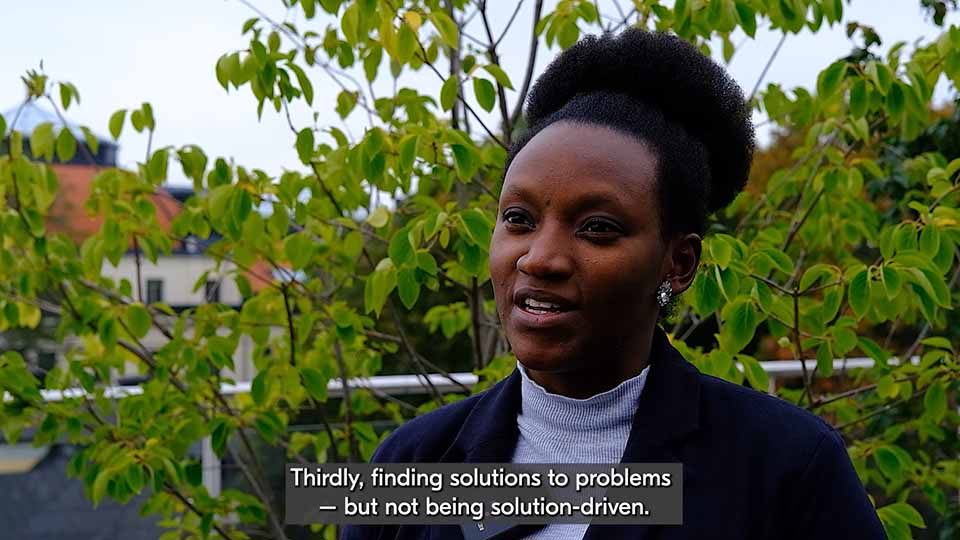I realised that imports are just as important as exports
Chantal Tuyishimire works as an E-commerce Associate and Advisor at the Ministry of Trade and Industry in Kigali, Rwanda. After participating in the Trade Academy’s Advanced Trade Policy Course, she has learned about the importance of imports for enhancing the value chain.

Chantal Tuyishimire tells about her experiences from Trade Academy’s Advanced Trade Policy Course.
What is your overall impression of the Trade Academy?
I’m really amazed and impressed about the programme and the way it’s organised. We started with the background and then moved on to a general understanding of how trade policy is conducted. Then we went back to put in practice what we had studied, looking at an issue that we selected ourselves. And then we came back to present an action plan.
It’s structured in a way that gives you full participation and you feel like you are part of it, not being fed with information as in a normal training school.
Can you name one specific thing that you liked about the programme?
I liked it when we went to visit different companies. It was my favourite time last time and this time too. It’s amazing, I really liked it.
You had to deal with the challenges of a fictional country, Algabia. What was that like?
The Algabia case was similar to different cases in our countries, especially Rwanda. It was a small country which we were analysing in terms of exports.
When we were handling the case – carrying out the impact assessment, stakeholder consultation analysis, the whole trade policy, and analysing how they could improve their work on standards – I really found that it was bringing us back to how these trade policy issues should be addressed at home.
What are your key takeaways?
The first takeaway is that imports are as good and as relevant as exports. We want export promotion, but we forget that imports help us in terms of the value chain. For me, that was the biggest thing to consider.
Secondly, the involvement of the private sector at every stage. We realised during the discussions and the home assignment that their involvement is very relevant.
Thirdly, finding solutions to problems by taking time to understand the problem – but not being solution-driven. That was my ‘wow’ moment.
How will what you learned change the way you work?
Being problem-driven in finding a solution will help me when advising my government to find real solutions for problems, and prioritising is the key. We need to identify the key actions, and the key solutions: what are we going to start with? Which one is the quickest to implement? Which is the best way?
When I’m doing the work back home I’ll remember to always think: am I really going in the right direction? Did I give myself the enough time to assess? Did I involve all the stakeholders? Have I applied all the rules? Did I do an RIA (Regulatory Impact assessment)? My ongoing work will be very easy because of what I learned here.
